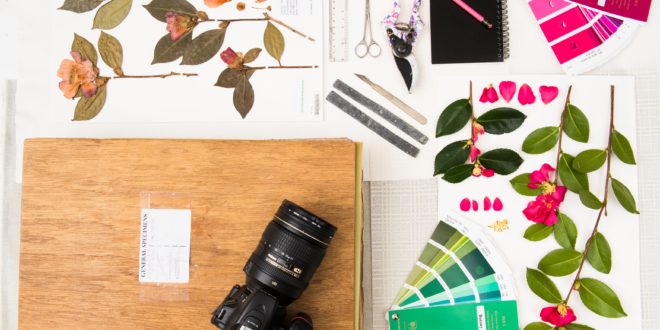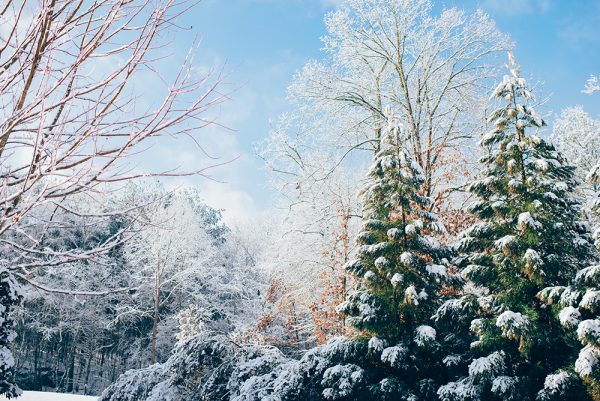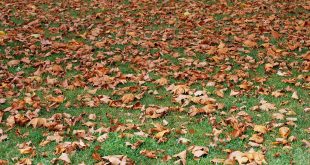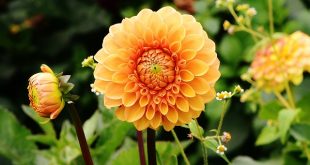The UK’s largest repository of dried garden plants will be available online after the Royal Horticultural Society (RHS) digitised its collection of specimens dating from 1731, future-proofing it for gardeners.
More than 86,000 dried specimens stored at RHS Garden Wisley have now been sorted and photographed with the support of the National Lottery through the Heritage Lottery Fund, during which the charity unearthed long-forgotten horticultural treasures including a potato collected by Charles Darwin and geranium that sprung from the spot where the Prince Imperial, son of Napoleon III, died. They will all be available to search on the RHS website from autumn 2020.
The opening-up of the collection will help to support conservation work and ensure an exciting future for plant diversity in UK gardens. The collection is already an essential resource for garden plant identification, containing authoritative specimens that fix the name of a plant and can be used to settle disputes. It also charts the history of plant introductions – many of which were bought back to the UK by the intrepid explorers of the 18th and 19th century – and those that have since fallen out of favour.
Gardeners will be able to use the digitised collection to identify plants, compare different cultivars, ensure consistency in garden colour schemes and confirm size and scale of plantings.
In 2020, the physical collection will also move to the new National Centre for Horticultural Science and Learning that will open at RHS Garden Wisley. The fast-expanding collection needs significantly more room to grow and in its current location the collection has to be frozen every 12 months to ward off biscuit beetle, a pest that devours dried plant material.
Yvette Harvey, Keeper of the Herbarium at the Royal Horticultural Society (RHS) said: “The process of pressing a plant for a herbarium has changed very little in 500 years but it’s important we make this important national resource ever more accessible. Moving the collection online we hope will help people to navigate the fascinating history of garden plants and play a role in the development and continuing relevance of herbaria in the digital age.”
A £4million grant from the Heritage Lottery Fund has enabled the digitisation of the RHS herbarium and its move to the new National Centre for Horticultural Science and Learning.
The charity is fundraising for a further £3.3million to complete the build project. The public can adopt herbarium boxes that will store the collections and have their name engraved on the wall within the new Centre. For more information and to help us to protect the future of plants, people and the planet visit www.rhs.org.uk
About the RHS: The Royal Horticultural Society was founded in 1804 by Sir Joseph Banks and John Wedgwood to inspire passion and excellence in the science, art and practice of horticulture. Our vision is to enrich everyone’s life through plants, and make the UK a greener and more beautiful place. We believe everyone in every village, town and city should benefit from growing plants to enhance lives, build stronger, healthier, happier communities and create better places to live.
We held our first flower shows in 1820, were granted a Royal Charter in 1861 and acquired RHS Garden Wisley, our flagship garden, in 1903. From our first meetings in a small room off London’s Piccadilly, we have grown to become the world’s largest gardening charity. At our gardens and shows and through our scientific research, publications, libraries and our education and community programmes we inspire a passion for gardening and growing plants, promote the value of gardens, demonstrate how gardening is good for us and explain the vital roles that plants undertake.
The RHS is committed to bring the joy of gardening to millions more people, inspire the next generation of gardeners and invest in the future to safeguard a £15 billion industry employing more than 300,000 people. We are entirely funded by our members, visitors and supporters. RHS membership is for anyone with an interest in gardening. Support the RHS and help us secure a healthy future for gardening. For more information call: 020 3176 5820, or visit www.rhs.org.uk/join
 Gardeners Club The Gardeners Club is a free to join online club for everyone with an interest in gardening and gardens.
Gardeners Club The Gardeners Club is a free to join online club for everyone with an interest in gardening and gardens.






